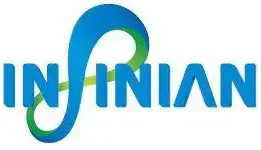Tata PRI Line (Primary Rate Interface) Connection Provider in Bangalore and Chennai for Price/Cost and Tariff Plan Call: 9739091119
Tata PRI Line (Primary Rate Interface) is a business-grade voice connectivity solution offered by Tata Tele Business Services (TTBS), designed to support high-volume, multi-channel communication needs.
Primary Rate Interface (PRI)
Seamlessly support ever-increasing voice traffic of your business

Accelerate your business with seamless communication
In today’s connected world, communication is the focal point of all events, activities and businesses. With rapid progress in technology, enhancement in communication has become the top priority for all companies. Irrespective of their size, enterprises are increasingly on the hunt for feasible, reliable and proven solutions to support their voice and data traffic requirements. This is where Tata Primary Rate Interface (PRI) solution can work its magic for businesses like yours.
Digital connection for all your
voice needs
The Tata PRI solution is an end-to-end digital connection on our robust network infrastructure. On a single link it provides your business the capability of upscaling and the flexibility for using multiple channels at the same time. Tata PRI solution is offered over both time-division multiplexing (TDM) and Session Initiation Protocol (SIP) technology. TDM offers 30 channels in one link while on single SIP link, you can increase channels as per your needs. Each channel offers two-way communication.

A PRI (Primary Rate Interface) line is a type of digital telecom connection used primarily by businesses to handle multiple voice, data, and video transmissions over a single line. It’s part of the ISDN (Integrated Services Digital Network) standard and is especially useful for organizations that need to manage a high volume of simultaneous calls.
PRI vs SIP Trunking
| Feature | PRI Line | SIP Trunking |
|---|---|---|
| Technology | ISDN-based | IP-based |
| Number of Channels | Fixed (23/30) | Flexible, based on bandwidth |
| Scalability | Add physical lines | Add virtual trunks easily |
| Cost | Higher initial hardware cost | Lower operational costs |
| Call Quality | Consistent, dedicated lines | Internet-dependent |
| Future-Proofing | Being phased out globally | Modern and adaptable |
Here’s a detailed comparison of Tata PRI line vs Jio PRI line connections — both are digital voice services typically used in business environments for handling multiple simultaneous voice calls over a single circuit (commonly used in call centers, PBXs, or customer service setups):
Tata PRI Line Connection Tariff Plan — a business-grade voice solution offered by Tata Tele Business Services (TTBS) for enterprises requiring multi-line voice communication via traditional or IP-based systems.
Tata Tele Business Services (TTBS) offers PRI (Primary Rate Interface) line connections in Bangalore and Chennai tailored for businesses that require high-volume, multi-channel voice communication. Here’s a breakdown of the typical offerings and pricing:
📞 Tata PRI Line Tariff Plans – Bangalore and Chennai (Indicative)
These are approximate rates and may vary based on location, infrastructure, and bundled services like EPABX, PRI cards, or cloud telephony features.
📍 Ideal For:
- Call centers, customer support teams
- Enterprises with high inbound/outbound call volumes
- Businesses using PBX systems or hosted telephony
You can explore more or request a quote from Tata PRI Line Connection Providers in Bangalore and Chennai or Call: 9739091119
📦 What’s Included
- 30 Simultaneous Call Lines (B-Channels)
- 1 Signaling Channel (D-Channel)
- DID/DDI Number Range (e.g., 100–1000 numbers)
- CLIP (Calling Line Identification Presentation)
- Optional SIP Gateway
- 24/7 NOC support and uptime SLA
🧾 Installation Charges (Approx.)
| Item | One-Time Charges (Approx.) |
|---|---|
| PRI Line Installation | ₹1,000 – ₹2,500 |
| DID Number Blocks | ₹500 – ₹1,000 per block |
| CLIP Activation | ₹500 – ₹1,000 |
| SIP Gateway (optional) | Depends on hardware |
📍 Where Is It Available?
Tata PRI lines are available in all major metros and business hubs including:
- Mumbai, Delhi NCR, Chennai, Bengaluru, Hyderabad, Pune, Ahmedabad, Kolkata, Coimbatore, Kochi, etc.
📞 How to Get Tata PRI Line
- ☎️ Contact: 9739091119
💼 Key Features of Tata PRI Services
| Feature | Benefit |
|---|---|
| 30 Channels per Link | Handle high call volumes efficiently |
| SLA-backed Uptime | 99.5% network availability guarantee |
| MTTR (Mean Time to Resolve) | 4 hours |
| Supports Video Conferencing | Ideal for hybrid work environments |
| Extension Billing | Simplified cost management across branches |
| Bundled Hardware Options | Includes PRI cards or EPABX if needed |
💰 Indicative Tariff Plans
While exact pricing depends on location, configuration, and contract terms, here’s a general idea:
These are ballpark figures. For exact quotes, TTBS recommends contacting their sales team or requesting a callback via 9739091119
🧩 Add-On Services
- Call Hunting & Forwarding
- Disaster Recovery Routing
- Voice Recording Integration
- Smartflo Cloud Telephony (for hosted contact centers
Here are trusted providers of Tata PRI Line (Primary Rate Interface) connections in Bangalore and Chennai ideal for businesses needing high-capacity voice communication:
🏢 Tata Tele Business Services (TTBS) – PRI Line
- Service: 30 simultaneous voice channels on a single digital link
- Technology: Available via TDM (ISDN) or SIP
- Benefits:
- SLA-backed uptime (99.5%)
- Seamless integration with PBX systems
- Extension-wise billing and uniform pilot numbers
📍 Tata PRI Line Provider
- Location: Bengaluru and Chennai
- Phone: 📞 9739091119
- Highlights:
- Digital voice connectivity for call centers, hotels, and enterprises
- TDM offers 30 channels; SIP allows scalable virtual channels
- Reliable during internet outages
Tata PRI (Primary Rate Interface) line connection is a digital telecom service that enables multiple voice channels over a single physical line, ideal for businesses needing high-volume, reliable voice communication.
Here’s a detailed Q&A to help you understand how Tata PRI lines work and why they’re used:
How does PRI Line Connection work?
- Uses TDM (Time Division Multiplexing) or SIP (Session Initiation Protocol) to transmit voice and data.
- Each channel can be configured for incoming, outgoing, or two-way communication.
- Delivered over a dedicated copper or fiber line
What are the key features in Tata PRI Line Connection?
- 30 voice channels per PRI line
- Single number with multiple extensions
- 99.5% uptime guarantee backed by SLA
- 4-hour Mean Time to Repair (MTTR)
- Scalable: Add more lines as your business grows
- Supports CLI (Calling Line Identification) and DID (Direct Inward Dialing
What are the benefits in Tata PRI Line Connection?
- Cost-effective for high call volumes
- Reliable call quality with low latency
- Centralized call management
- Secure and private voice communication
- Portability: Easy to shift numbers within a city
What use cases does Tata PRI Line support?
- Call centers and customer support hubs
- Large enterprises with multiple departments
- Hotels, hospitals, and government offices
- Businesses needing high-volume inbound/outbound calling
What is the price of a Tata PRI line Connection?
- Starting Price: Around ₹10,000/month for standard PRI service.
Premium Plans: Can go higher depending on:
Number of channels required
Type of infrastructure (fiber vs copper)
SLA terms (uptime, MTTR)
Add-ons like rollover benefits or CLI/DID support
For example, Tata PRI with rollover benefits is listed at ₹10,000/month, while bundled broadband PRI services may cost up to ₹1,50,000 depending on speed and configuration
How to get a Tata PRI Line Connection quote?
You can contact Tata Communications directly or reach out at 9739091119 for customized pricing and installation support.
How many channels does a Tata PRI line provide?
A standard PRI line in India provides 30 voice channels, 1 D-channel for signaling, and 1 channel for synchronization, totaling 32 channels (E1 line).
Can Tata PRI lines be used for both inbound and outbound calls?
Yes. Tata PRI supports both incoming and outgoing calls simultaneously, suitable for customer support, sales, and other business communication needs.
What are the typical Tata PRI line charges?
Pricing varies by city and usage. Indicative range:
Installation: ₹5,000 – ₹10,000
Monthly rental: ₹3,000 – ₹6,000 per line
Call charges: Per minute or bundled plans available.
(Tata representatives can provide city-wise quotations.)
What’s the difference between PRI and SIP trunk?
| Feature | PRI Line | SIP Trunk |
|---|---|---|
| Technology | Digital (E1/T1) | IP-based (VoIP) |
| Channels | Fixed 30 | Scalable (as needed) |
| Equipment | PBX with PRI card | IP-PBX |
| Cost | Higher initial setup | Lower setup, scalable |
| Flexibility | Less flexible | Highly flexible |
How to apply for a Tata PRI Line connection?
You can contact Tata Tele Business Services (TTBS) via:
or Contact: 9739091119
Documents like company registration, address proof, and ID proof are required.
